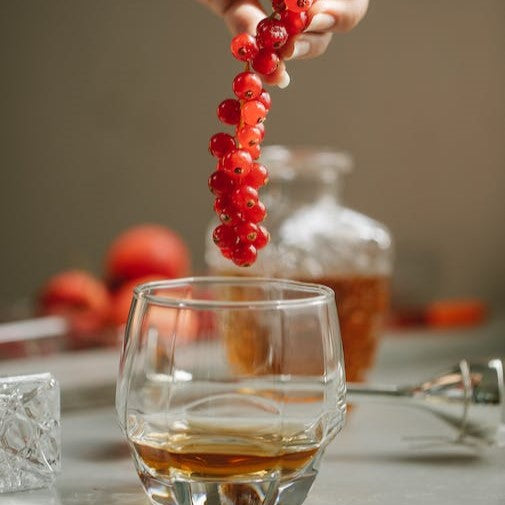Whiskey that has been infused with other flavors is called flavored whiskey. Fruits, spices, herbs, and sometimes even sugars are added to the product at various stages of preparation to impart their flavor. The resulting liquor is made to be less intimidating and intimidating to drink, with the hope of attracting a wider audience.
Reasons Whiskey Connoisseurs Don't Like It
Traditional whiskey drinkers worry about the spirit losing its original character and history if it is altered in any way. To some, flavored whiskey represents a betrayal of the centuries-old methods of production and skill that have come to define whiskey. The use of artificial flavors is a red flag, as it suggests an attempt to hide the spirit's genuine nature.
One of the most lauded features of whiskey is the complexity of its flavor profile, which is achieved through long aging and careful maturation. However, this nuance is sometimes lost in flavored whiskey in favor of a more prominent added flavor. This can result in a less nuanced whiskey drinking experience and a loss of depth and character, two qualities prized by whiskey connoisseurs.
Extremely Sweet: Many flavored whiskeys have sweeter characteristics in an effort to attract more customers. Even though artificial sweetness might complement some whiskey varieties (like bourbon), too much of it can be off-putting. The natural sweetness that comes from the grain and the aging process has been altered, which is off-putting to purists.
Flavored whiskey adds an unpredictable level of complication to the already difficult process of making whiskey. Some flavored whiskeys are expertly made, but others might not be as well-balanced or tasty. Many whiskey drinkers have been wary of trying anything other than their go-to brands because of this instability.
Effects on Whiskey Social Groups
Whiskey clubs are groups of people who have a passion for whiskey and want to learn more about its rich history and diverse varieties. There has been a fascinating shift in the dynamics of these groups since the introduction of flavored whiskey.
Education and discussion: Flavored whiskey has provoked heated disputes in whiskey clubs. The benefits and downsides of flavored expressions are often discussed at tasting events and in roundtable conversations. Such exchanges have the potential to enrich our understanding of whiskey production from a variety of angles.
Whiskey clubs are responsible for preserving the culture and history of whiskey for future generations. These clubs are essential in protecting the history of conventional whiskey-making as flavored whiskey becomes increasingly popular. These clubs keep the culture of whiskey appreciation alive by holding events that highlight the history and craftsmanship of whiskey and by continuing to appreciate vintage expressions.
While some whiskey clubs frown upon flavored whiskey, others see it as an exciting new frontier. Members of these clubs may be encouraged to try new things by hosting themed tastings centered on specific flavors. These clubs are able to meet the needs of its members by incorporating both time-honored and cutting-edge forms of expression.
There is no denying the impact that flavored whiskey has had on the whiskey market. Still, whiskey connoisseurs disagree on this point. Flavored whiskey is controversial because purists worry that it lacks the subtlety and consistency of regular whiskey and is sometimes too sweet. However, flavored whiskey has become popular in whiskey bars, where it has sparked heated discussions and inspired new discoveries. The future of this much-loved liquor will be shaped by debates over preservation and reinvention as the whiskey environment continues to shift.
